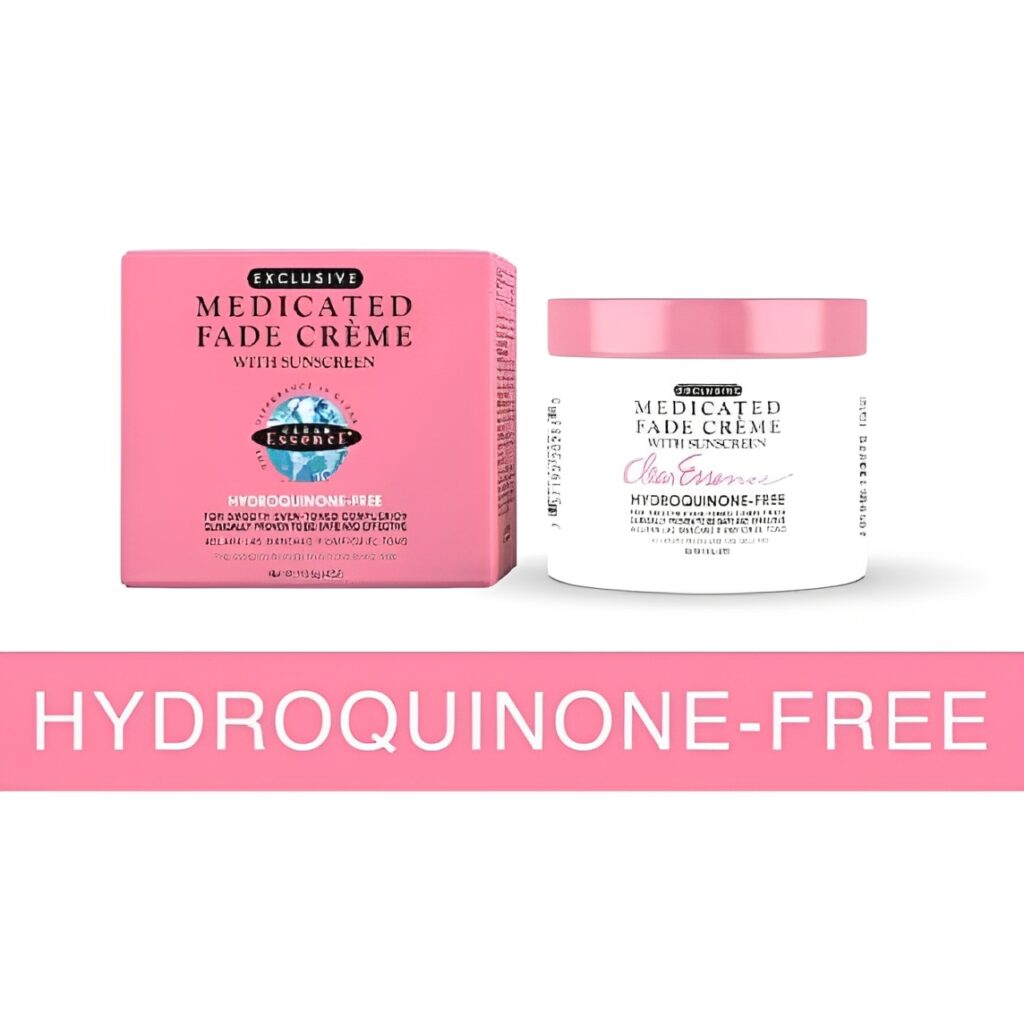
fade creme
What Is Fade Cream?
Fade creams are skincare products designed to lighten dark spots, hyperpigmentation, and uneven skin tone. They’re popular among people looking to achieve a more balanced complexion. But like any skincare product, they come with potential risks if not used correctly.
Common Ingredients in Fade Creams
Most fade creams contain active ingredients like:
- Hydroquinone (a strong skin-lightening agent)
- Kojic acid (derived from fungi)
- Vitamin C (a natural brightener)
- Alpha arbutin (a gentler alternative to hydroquinone)
- Retinoids (to promote skin renewal)
While these ingredients can be effective, they may also cause side effects if misused.
How Does Fade Cream Work?
Fade creams work by inhibiting melanin production—the pigment responsible for skin color. Some exfoliate the skin to remove darkened layers, while others block enzymes that trigger pigmentation. However, disrupting melanin can sometimes lead to unwanted reactions.
Potential Side Effects of Fade Cream
Skin Irritation and Redness
One of the most common side effects is irritation. Ingredients like hydroquinone and retinoids can cause redness, burning, or peeling, especially for first-time users.
Hyperpigmentation or Hypopigmentation
Ironically, overusing fade cream can worsen pigmentation or create light patches (hypopigmentation), leaving skin looking blotchy.
Allergic Reactions
Some people may develop allergies to certain ingredients, leading to itching, swelling, or rashes. Always check the label for potential allergens.
Thinning of the Skin
Prolonged use of strong fade creams, especially those with steroids, can thin the skin, making it more prone to damage.
Increased Sun Sensitivity
Many fade creams make skin more vulnerable to UV rays, increasing the risk of sunburn and further pigmentation issues.
Uneven Skin Tone
Improper application can result in uneven fading, where some areas lighten more than others.
Who Should Avoid Using Fade Cream?
People with Sensitive Skin
If your skin reacts easily to products, fade creams with harsh ingredients might do more harm than good.
Pregnant or Nursing Women
Some ingredients, like hydroquinone, may not be safe during pregnancy or breastfeeding.
Individuals with Certain Skin Conditions
If you have eczema, rosacea, or active acne, consult a dermatologist before using fade cream to avoid flare-ups.
How to Use Fade Cream Safely
Patch Test First
Before full application, test a small amount on your inner arm to check for reactions.
Follow the Recommended Dosage
More isn’t always better. Overuse can lead to severe side effects—stick to the instructions.
Always Use Sunscreen
Since fade creams increase sun sensitivity, applying SPF 30+ daily is non-negotiable.
Moisturize Regularly
To combat dryness and irritation, keep your skin hydrated with a gentle moisturizer.
Natural Alternatives to Fade Cream
If you’re wary of chemicals, consider natural options like:
- Aloe vera
- Licorice root extract
- Green tea extract
- Turmeric masks
These may take longer to show results, but are gentler on the skin.
When to See a Dermatologist
If you experience severe irritation, persistent redness, or worsening pigmentation, stop using the product and consult a dermatologist.
Conclusion
Fade creams can effectively treat dark spots, but they come with risks. Proper usage, patch testing, and sun protection are key to avoiding side effects. If in doubt, seek professional advice or explore natural alternatives.
FAQs About Fade Cream Side Effects
- Can fading cream permanently damage my skin?
Overuse, especially with hydroquinone, can lead to permanent lightening or thinning of the skin.
- How long does it take to see results from fade cream?
Results vary, but most people notice changes within 4-8 weeks of consistent use.
- Can I use fade cream on my entire face?
It’s best to spot-treat only hyperpigmented areas to avoid uneven skin tone.
- Are there fade creams without hydroquinone?
Yes, kojic acid, vitamin C, or alpha arbutin options are safer alternatives.
- Why does my skin burn when I apply fade cream?
Burning indicates irritation—either the product is too strong or your skin is sensitive. Discontinue use if it persists.
To read more articles.







